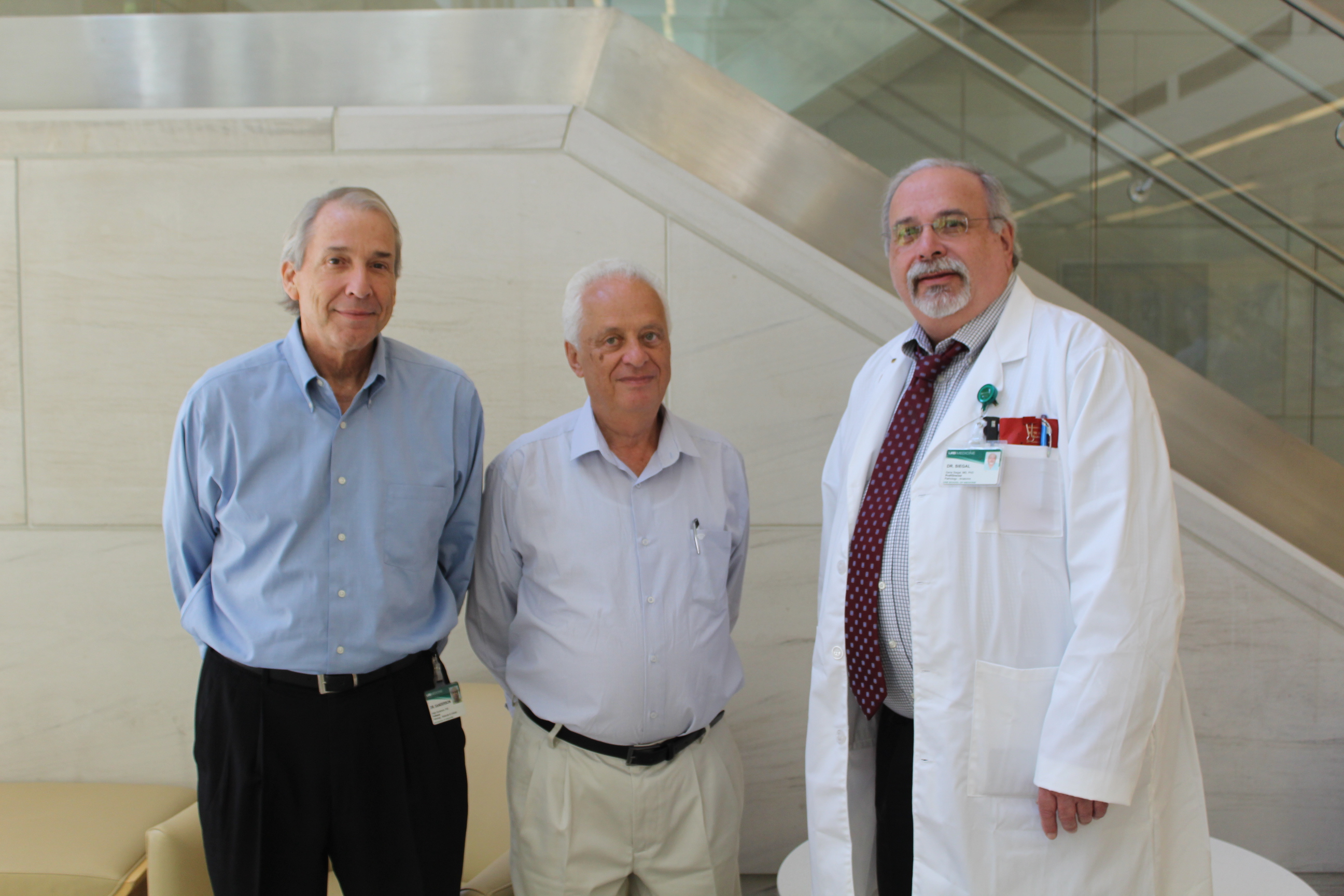UAB Pathology recently welcomed a world-renowned expert on heparanese Israel Vlodavsky, Ph.D., to present the sixth annual John Jay Listinsky Lecture in Glycobiology. On Friday, August 30, Vlodavsky traveled from Israel's Technion Integrated Cancer Center, where he heads the Tumor Biology Lab, to lecture on "Heparanese: From Basic Research to Novel Therapeutics for Cancer Inflammation."
Vlodavsky is the world's leading expert on heparanese, an enzyme that cleaves heparan sulfate, who has authored more than 400 articles mosty related to this remarkable enzyme that plays a key role in cancer progression and inflammation. He has worked for decades on heparanese cancer research with UAB Pathology Division Director Ralph Sanderson, Ph.D., Molecular & Cellular Pathology.

Sanderson's collaboration with Dr. Vlodavsky spans almost two decades, beginning when they met at a meeting in Stockholm, Sweden in the early 2000s. "I was wanting to move some of my work into the heparanase field and Israel was happy to collaborate with me by supplying some needed heparanase reagents," Sanderson recalls. "That early collaboration blossomed into a longstanding collaboration and friendship that has covered multiple projects, including two grants from the NIH and two from the United States–Israel Binational Science Foundation."
Their work together focuses on understanding the mechanisms underlying the ability of heparanase to promote tumor progression, including studies on metastasis, tumor growth and angiogenesis.
"In addition, we worked together on development and clinical testing of a novel heparanase inhibitor that has been tested successfully in human myeloma patients," Sanderson says. "Currently our work is continuing to focus on mechanistic studies, but are now aimed at understanding how expression of heparanase by host (non-tumor) cells within the tumor microenvironment contribute to cancer progression."
Dr. Jay John Listinsky, an adjunct associate professor of pathology at UAB at the time of his untimely death in 2012, originally trained as a diagnostic radiologist but had a decades-long interest in fucosylated molecules and their overlapping physiologic properties. He collaborated with investigators in the Division of Anatomic Pathology for many years, which generated a number of novel manuscripts which added important data to the knowledge base of glycobiology. To further this work, his friends, colleagues, and family, spearheaded by his wife and UAB pathologist, Cathy, endowed this lectureship for future generations.
